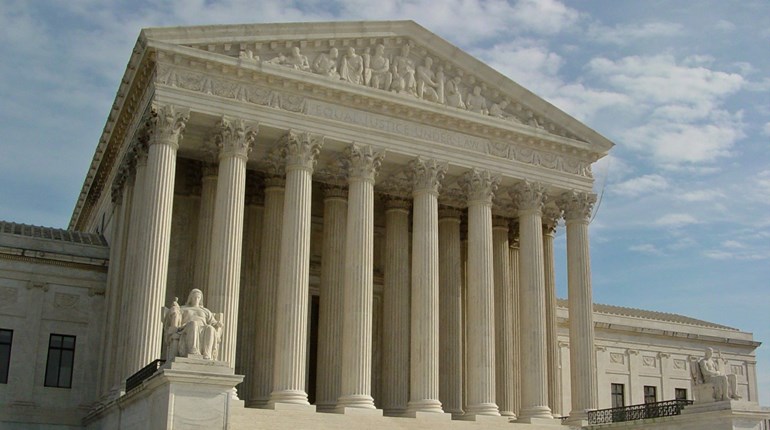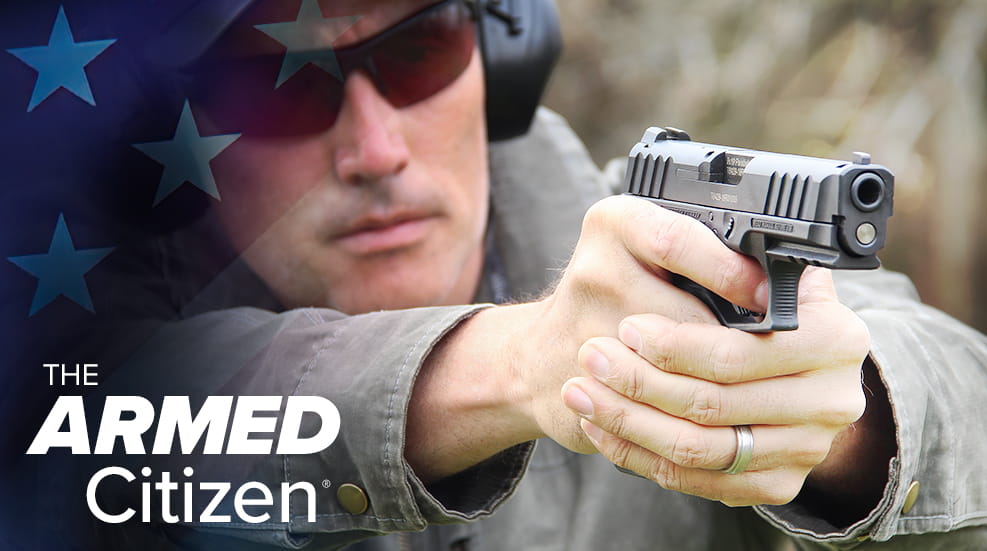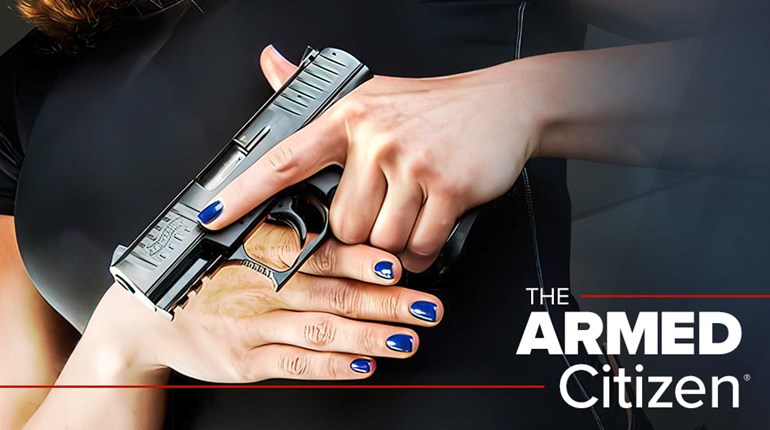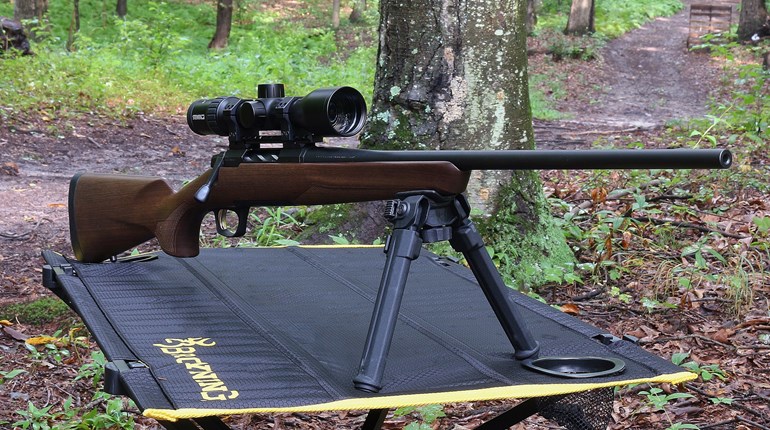Many of us remember Chris Cheng from the History Channel’s long-since-canceled show “Top Shot.” The show ran for five seasons, between 2010 and 2013, and featured two teams of competitors who had to use an unknown array of rifles, handguns and shotguns on various targets as they ran through shooting stations. One by one, the lowest-scoring marksmen were eliminated.
Cheng was a fan. In fact, he thought he’d like to be on “Top Shot.” So he applied. The thing was, Cheng wasn’t much of a shot at the time. He owned a few guns and did compete a little, but he says, “I wasn’t very good.” He was then a full-time employee at Google.
Also, even if he was chosen, he wouldn’t find that out until just a month before the competition, so he decided to spend every free minute in the five months he had until then learning the fundamentals of shooting.

“I spent about 25 hours a week reading about shooting, watching shooting videos and spending time with instructors,” said Cheng.
When he said this during a video interview for A1F.com, I laughed and said, “So you were a Google geek who decided to find a smart way to beat seasoned competitors. And then you went and did it!”
He winced when I said “Google geek,” but agreed it was true. Instead of trying to get his hands on all sorts of different firearms, he simply worked on trigger control, follow-through and other fundamentals. He also spent a lot of time figuring out how to prepare mentally, as he wanted to stay calm and focused during the timed sequences in the competition.
It worked. He watched more-seasoned competitors give in to the pressure, but he kept his composure and won. Cheng has since become an important spokesperson for the shooting sports, as he reaches people in the Asian and gay communities that a lot of gun owners just can’t.
A1F: Do you believe there will be continued growth in the shooting sports among younger generations inspired by American role models like you, a winner of “Top Shot,” and like Amber English and Vincent Hancock, who both won gold in skeet in the Olympics this past summer?
Cheng: Absolutely. The more positive representations of the shooting sports that we see in the public arena, the more growth we’ll see in new shooters taking up the sport. It was so exciting to see Amber and Vincent make our country proud and win gold for America. We also saw other medal winners: gold for William Shaner in Men’s Air Rifle, silver in Mixed Team Air Rifle for Mary Tucker and Lucas Kozeniesky, and silver for Kayle Browning in Women’s Trap; and Maddy Bernau and Brian Burrows won bronze in Mixed Team Trap.
It was America’s best shooting performance in the Olympics since 1964. Quite an amazing feat, especially given how COVID upended and disrupted our Olympians’ normal training schedules and routines. They persisted and succeeded. Congratulations to our USA Shooting team!
A1F:: Time recently ran an article titled “Why Asian Americans Are Joining the Rush to Buy Guns.” Given that even mainstream-media outlets are noticing this trend, what are you hearing?
Cheng: I’m seeing a sustained and continued interest in firearms for self-defense and personal protection among the Asian American community. Unfortunately, a key driver of this interest is the continued racist attacks against Asian Americans across our country. The murder of Vicha Ratanapakdee in San Francisco last year was a cataclysmic moment. Mr. Ratanapakdee was a 74-year-old Thai American who was violently shoved to the ground and died of his injuries. It was a disgusting attack against a senior citizen who was minding his own business as he walked around the block. The video of the attack made me sick. It’s frightening to see criminals commit these types of crimes but then get minimal punishment.
I am a San Francisco resident, and I am embarrassed by our progressive District Attorney Chesa Boudin, who is failing to prosecute and jail criminals. In fact, he’s doing the opposite—he’s releasing dangerous criminals as part of his campaign against mass incarceration. If you’ve been convicted of a crime, you should serve your time. San Francisco Police are demoralized and unmotivated to arrest criminals because the chances seem slim that our DA will prosecute. It’s gotten so bad that there are two recall petitions in play. One of them is supported by a wide coalition of organizations representing Democrats, LGBTs, and Asians and other people of color. I am fully supportive of recalling our DA, Chesa Boudin, who continues to advocate for criminals’ rights at the expense of the city’s general safety.
We have seen home burglaries and car break-ins increase, while the quality of life in San Francisco continues to sink lower and lower. Many residents, Asian and non-Asian alike, are concluding that firearms ownership is one part of the solution in response to the civil unrest, violence and general distrust of government institutions. We’ve seen mainstream media sort of disappear with regard to not covering racist attacks and crimes against Asian Americans, even though the situation is still frightening.

A1F: How do you respond when you hear people blaming guns (or our Second Amendment rights) for the actions of criminals?
Cheng: When I hear this train of thought, I think back to one of the most-insightful experiences I’ve had teaching a new shooter. I was teaching a private lesson for a couple, and the wife was shooting my AR-15. After she fired a few shots, I asked her to put the gun on safe and put it down on the table. I then asked her a standard question I ask all students: “How did that feel?” Typically, a student either really likes it, or they don’t, due to noise or some other reason. But this student’s reaction was unlike any I had heard before.
She said, “I was expecting to feel evil.” I was really confused and I asked her to elaborate. She said, “Well, I’ve heard so many bad things about the AR-15 and other types of guns that I expected to feel evil when shooting this gun. I was relieved when I didn’t feel compelled to go commit crimes or shoot people.”
My jaw dropped to the floor. That isn’t how guns work. Shooting guns doesn’t make you evil or compel you to go hurt people or commit crimes. I remind myself of this story when I hear people blame guns for crime. If someone feels this way, the most-effective way to counter it is to convince this person to go to the range and shoot.
A1F: Gun sales in America have been rising for decades. Many of the surges in gun sales were (and are now) clearly related to threats to our rights from certain politicians, but still, the growth in sales also occurred in periods when pro-Second Amendment politicians were in charge. Do you see this as evidence President Joe Biden (D) and others on the Left are out of touch with America?
Cheng: They are absolutely out of touch with our freedom. When President Biden announced his executive orders to limit our gun rights earlier this year, Biden actually said in the same breath that he wanted to preserve our Second Amendment rights. People see through this dishonesty. As we know, the more politicians lean into their anti-gun rhetoric, the more Americans flock to purchase guns in the fear that they will be banned or restricted further.
A1F: Given that you worked at Google, but left to compete in the shooting sports, how do you view tech censorship of our Second Amendment rights? Have your former Google colleagues been supportive of your achievements?
Cheng: Tech censorship of firearms content on YouTube, Facebook, Instagram and other platforms started off slowly in the mid-2010s, and then it greatly accelerated to present day. What’s happening in tech is an embarrassment and goes against everything I and many tech people stand for. The internet is supposed to be a place of freedom and a conduit for information sharing. I have seen too many YouTube, Facebook and Instagram firearms content creators whose accounts are getting shadow banned, completely banned, disabled and flagged for abusive content. The content is innocuous, ranging from firearms safety, defensive gun use, training, maintenance, gun rights and other areas which should not be targeted for review.
What I’ve found is that some of these tech companies have gun-content policies which are extremely confusing. What then happens is you have 20-somethings performing content-policy review on a topic they don’t understand. Imagine if you didn’t understand guns or had never shot one, and your job is to review social-media content that includes guns to evaluate whether it is breaking policy guidelines. It’s an untenable position, and what I’m sure is happening is that these policy reviewers are erring on the side of caution and flagging as much content as they can. Because if they miss something and that content creator or video somehow makes it into the mainstream media and so becomes a public-relations problem, then they probably fear being disciplined or fired.
There are many of my former Google colleagues who are gun owners and who support our Second Amendment rights. This is pretty true at many other tech companies as well. The problem is that this support doesn’t rise to the top of the C-suite. I do know a few C-suite techies who are closeted gun owners. They fear reprisal or retribution if their Second Amendment perspectives are known. It is a real fear which I understand, but I would like to see the tech community practice what we preach with respect to inclusivity and tolerance.
 A1F: Have you been canceled or otherwise attacked on Twitter, Instagram or other platforms for supporting our Second Amendment rights? What advice do you have for Second Amendment advocates who want to talk about our rights?
A1F: Have you been canceled or otherwise attacked on Twitter, Instagram or other platforms for supporting our Second Amendment rights? What advice do you have for Second Amendment advocates who want to talk about our rights?
Cheng: I’ve been attacked by both anti-gun and pro-gun entities for speaking out on behalf of our Second Amendment rights. Gun-control advocates, such as Moms Demand Action, Everytown and Fred Guttenberg, came after me on Twitter when the NRA posted a video of me defending our right to self-defense with a firearm in the face of increased racist attacks against Asian Americans across our country. I stood my ground in my firm belief that racist attacks are unacceptable, and that we should affirm our right to defend ourselves with a firearm whether it’s out in public or in our homes.
Unfortunately, I’ve also been attacked by some pro-gun folks for my LGBT advocacy. Most recently, I was on the cover of RECOIL magazine wearing a distressed American flag with LGBT colors. Much of the criticism levied was focused on the question “why does Chris need to say he’s gay?”
The answer is, to reach new gun owners, we need to be visible and vocal. We need to reach out to gay people and people of color by telling them and showing them that the Second Amendment is for them, as it is for everyone. We need to relate to how gun rights are important not in a general sense, but in a specific sense to particular people and communities.
For example, the LGBT community has a history of distrust of law enforcement dating back to the 1960s Stonewall riots in New York City and the Compton Cafeteria riots in San Francisco. A fair amount of this distrust has carried over to the present day. If I’m speaking to an LGBT person who has this position of distrust, I will then ask them if they trust law enforcement to protect them when they’re getting gay bashed? If the answer is no, the question then becomes “how are you going to protect yourself?” That is the opening for a discussion about how a firearm might potentially be an option for this individual.
While the Second Amendment is for everyone, we cannot always speak in generalities; we must target our messaging and arguments to the individual or group for maximum resonance.
To reach new gun owners, we need to be visible and vocal.
A1F: Will the continued growth in gun ownership influence Big Tech to just leave gun owners alone?
Cheng: No, continued growth won’t be good enough to influence Big Tech, who can afford to ignore gun owners. In general, we need to continue speaking up about the banning, censorship and demonetization of firearms content creators. It’s unfortunately not easy for us to just leave the dominant social-media networks. Of course, the government could come in and regulate, but I am generally not a fan of that. But then, gun owners are being discriminated against.
A1F: How can gun owners do a better job of reaching out to new gun owners or to those who are interested in buying a gun for self-defense and/or sport?
Cheng: First, be “out” as a gun owner. We can’t effectively reach out to new gun owners if we aren’t visible and vocal. We’re the ones who are putting a positive face on gun ownership, and we need to overwhelm the negative perspectives many people see in the media and movies.
Second, look and listen for an opportunity to bring someone to the range. It’s easy when someone asks you to take them shooting, but there are often more subtle cues such as someone asking lots of questions about guns or maybe it’s just their mention of a gun they saw in a TV show or movie. When those subtle cues arise, consider asking if that person has ever shot a gun to see their reaction or interest. If it’s positive, then they’d likely take you up on an invitation to the range.
A1F: How can people find and connect with you?
Cheng: I’m most active on Instagram and Facebook @TopShotChris, but I am sometimes on Twitter as well. My YouTube channel has lots of great content, some of it fun and wacky, but a large portion of it is a set of Firearms 101 instructional videos for the beginner pistol, rifle and shotgun shooter.
My website is TopShotChris.com. I attend the NRA Annual Meetings every year as well as the SHOT Show and other industry events. If you see me at an event, please come say hello. I really enjoy meeting new people and it would be great to chat with you.






















